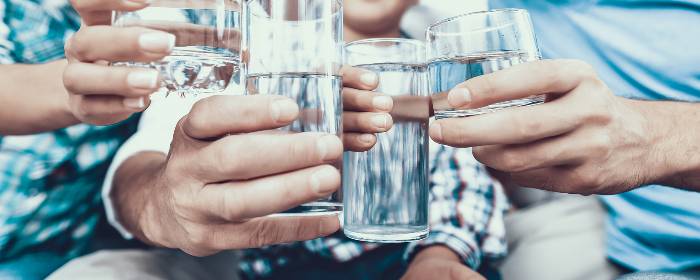
by admin | Jun 9, 2023 | Health Awareness
Adding salt or minerals to your water for hydration can have certain benefits. Here are a few potential advantages:
Electrolyte balance: Electrolytes are minerals that carry an electric charge and play a crucial role in maintaining proper fluid balance, nerve function, and muscle contractions. By adding a small amount of salt or minerals like potassium, magnesium, and calcium to your water, you can help replenish electrolytes lost through sweat or excessive urination. This can be particularly beneficial during intense physical activity or in hot weather conditions.
Enhanced hydration: Adding a pinch of salt to your water can improve its absorption and promote better hydration. The presence of electrolytes in water can aid in fluid retention and prevent dehydration by facilitating the absorption of water in the body.
Improved taste and palatability: Some people find plain water to be bland or unappealing, which can lead to inadequate fluid intake. Adding a touch of salt or minerals can enhance the taste of water, making it more enjoyable and encouraging you to drink more.
Replenishing trace minerals: Certain minerals, such as magnesium and potassium, are essential for various bodily functions. If your diet is lacking in these minerals, adding them to your water can be a convenient way to supplement your intake.
Support for active lifestyles: For individuals engaged in prolonged or vigorous exercise, consuming electrolytes through water with added salt or minerals can help prevent muscle cramps, fatigue, and maintain optimal performance.
It’s important to note that while adding salt or minerals to your water can have benefits, moderation is key. Excessive intake of salt or minerals can have negative health effects, such as increased blood pressure or electrolyte imbalances. It’s recommended to consult with a healthcare professional or a registered dietitian before making significant changes to your hydration routine or electrolyte supplementation.

by admin | Aug 27, 2019 | Health Awareness
Of all the pieces of wellness advice we hear regularly, the importance of drinking enough water seems to be the most ubiquitous. Indeed, no matter your dietary preferences, workout schedule, or any other unique lifestyle factors, experts always tend to agree that staying hydrated is the one essential practice that can work in everyone’s favor. But just how likely are we to become dehydrated?
Water is the most important substance for survival.
Truth: The prevalence of the “drink more water” mantra holds up. Our cells require H2O to function, and the body uses complex mechanisms to ensure it has enough water to work well. Roughly 75% of a baby’s weight is made up of water, while it makes up 55% of an adult’s weight.
Dark urine always indicates dehydration.
Myth: Urine usually ranges from pale yellow to deep amber. Its yellowish tint is a result of a pigment called urochrome. Typically, well-hydrated individuals will have urine on the paler side. Yet, dark urine doesn’t automatically indicate a need for more water. Beets, berries, asparagus, and certain medications can alter the hue of urine.
Dehydration is common.
Myth: While we know staying hydrated is important, we typically only see severe hydration in performance athletes, the elderly, and individuals with severe illness. The thirst mechanism becomes less effective as we grow older, which is why older adults are more likely to become dehydrated.
There are no formal guidelines on water intake.
Truth: US Dietary Recommendations for water are based on median water intakes. Currently, there is no adequate measurement of the hydration status of the population. For most people, the sensation of thirst is a good indicator of when and how much water to drink. Yet, factors like age, humidity, heat, and physical exertion can impact the need for hydration.
Inadequate hydration poses serious health risks.
True: As mentioned above, water helps the body function on a cellular level. Staying hydrated protects against kidney stones, regulates gastrointestinal function, and may prevent vascular diseases, including stroke. Ample hydration is especially important for people with diabetes. With that being said, further research is needed to determine how hydration affects long-term health and the potential role it plays in chronic disease.
Staying hydrated will leave you with glowing skin.
Myth: While severe dehydration may leave skin cracked and dry, drinking extra water won’t boost skin elasticity in people who already get sufficient hydration. Emollient moisturizers are better suited for combatting skin dryness.
You need to drink 8 glasses of water per day to stay healthy.
The verdict is still out on this one. Again, while there is no exact requirement for water, the National Academy of Sciences has issued general recommendations for women at 91 ounces of total water per day and 125 ounces for men. Keep in mind that this also includes water from all beverages and foods, including fruit and non-water drinks. With that said, the Institute of Medicine confirms that individuals can be adequately hydrated below or above the recommended intake levels.



 St. Petersburg, Florida
St. Petersburg, Florida
